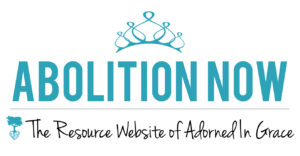
Life is messy and complicated. Stereotypes can lead us to believe the opposite, though. Issues are not so simple–even those like sex-trafficking that seem to be nothing short of evil.
Students Working to Break Down Sterotypes
“The National Center for Education Statistics reports that there were 21 million students enrolled in college in 2010 (U.S. Department of Education, 2012). With nearly the exact same number of people estimated to be enslaved today, it is imperative that students stand up against slavery.” – Student Abolitionist Movement
Life is messy and complicated. Stereotypes can lead us to believe the opposite, though. Issues are not so simple–even those like sex-trafficking that seem to be nothing short of evil.
My friend Lisa recently attended a workshop on sex trafficking at a service learning conference in Washington D.C. The premise of the workshop was to break down stereotypes surrounding sex trafficking. The presenters of the workshop were two college-age young women, connected to Student Abolitionist Movement. SAM is a project with Not For Sale Campaign that provides students with a network of resources to “educate, advocate, and take action for the end of the global slave trade” (Student Abolitionist Movement). At the conference workshop they taught about pimp tactics, and how to spot someone who is being swept up in the process. Lisa remembers thinking, “How could someone ever get wrapped into that? It seems like it would be so obvious…” However, something so dark can only be enticing when wrapped up in lies. The whole industry is wrapped up in lies, encasing all parties involved. The young women from SAM mentioned the danger of not believing you are loved. The goal was to bring the reality of the issue close to home–for those listening to look at the lives around them with different and informed eyes.
The young women from SAM brought attention to our culture at large, and the messages we believe. Prior to heightened education and awareness of what sex-trafficking is, women arrested for prostitution were often criminalized, depriving them of the proper care once out of the industry. These women should not be seen as “prostitutes,” but as prostituted women who have been through an abusive, traumatic life and must now learn to walk wholeheartedly into healing. Nearly 90% of women trafficked were previously sexually abused as well, further compounding their need for restoration and healing.
Relatedly, while prosecution for pimps is needed, it should go hand in hand with healing, as they too have been victims to the lies, and statistically have had abusive pasts themselves. These obscured views also bleed into the justice system. Lisa learned that it is often hard for judges to make sound decisions regarding youth who have been involved deeply in sex-trafficking. In court they often do not look like or act like children, and are easily criminalized. This could be because judges are also exposed to the media and stereotypes, and may have preconceived ideas of what a prostituted woman is. Some judges have realized this difficulty and are currently working on educating others to recognize and give justice to prostituted women.
Also, it does not help that many of the laws in our country are not sufficient at the moment to handle this issue with proper justice. The laws pertaining to this issue are too simple. Simple laws imply a simple problem, but that just is not the case. Thankfully, lawmakers and officials here in the Northwest are leaps ahead of the curve in this issue. Portland is known for no longer criminalizing women and children, setting an example for lawmakers all over America.
By the end of this workshop Lisa was overwhelmed, as were we both at the end of our Saturday morning coffee discussion about what she learned. We were both reminded again of the murky waters one needs to wade into in order to put an end to any injustice.
What could we do? I think both Lisa and I agreed that our hearts hurt the most about one thing in particular: there are souls all around us who do not know they are loved. We’re both only in a position to take action on the prevention side of sex-trafficking. However, we do not feel limited in what we can do.
We agreed that we should not underestimate the power of speaking truth into the lives around us. We can share the truth of what we know about trafficking in our city, breaking down stereotypes, and we can also share the truth of what we know about people in our lives, that they are loved and have value, breaking down the lies. God did not create “prostitutes”–everyone on Earth has infinite value because they are created in the image of God and loved by Him.
Don’t underestimate hope and beauty. They’ll find their way into even the darkest and messiest of places.

